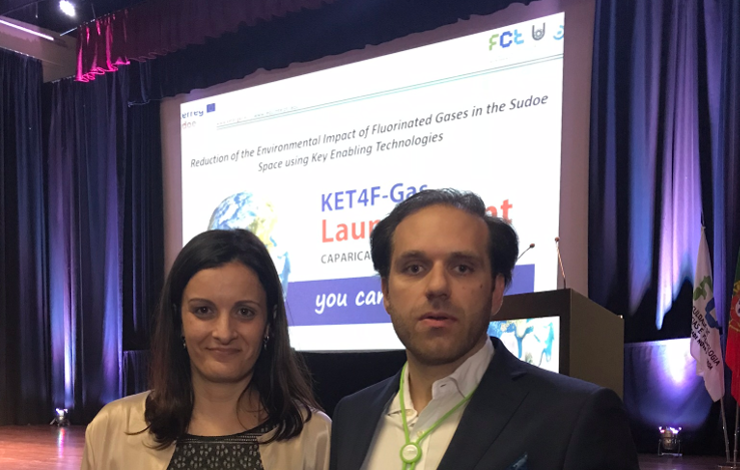12-06-2018

The Faculdade de Ciências e Tecnologia - Universidade NOVA de Lisboa (FCT NOVA), coordinator of the European project for the development of technologies for the recovery and recycling of fluorinated gases - KET4F-Gas - hosted today, 11th June at 2:00 pm, the launch event of the project. The aim of the event is to show the objectives, activities and expected results of the project.
KET4F-Gas is a European project co-funded by the Interreg Sudoe Programme through the European Regional Development Fund (ERDF), with a funding of 1.7 million euros for 3 years. The consortium has a total of 14 partners and 6 associated members from Portugal, Spain, France and United Arab Emirates.
The objective of this project is to develop and implement Key Enabling Technologies, following the more benign and efficient green chemistry principles, as well as alternative and climate-friendly solvents to recover F-gases employed in refrigeration and air-conditioning equipment’s and reduce their emissions. By doing so, this project promotes the growth of applied research and eco-innovation to protect the environment through the application of KETs, allowing the technological transfer to improve the competitiveness of SME’s in the regions of Southwest Europe. The results of this research will also benefit all citizens by increasing awareness to the F-gases problem, as well as waste managers, public administrations and industry, since in the regions of Southwest Europe there is no technology applied in this area and enterprises have a clear and imminent need to comply with current legislation.
The Interreg Sudoe Programme supports regional development in the regions of Southwest Europe by funding transnational projects through the European Regional Development Fund (ERDF). The programme promotes transnational cooperation to solve common problems within the regions of Southwest Europe, such as low investment in research and development, low competitiveness of SME’s, and exposure to climate change and environmental risks.